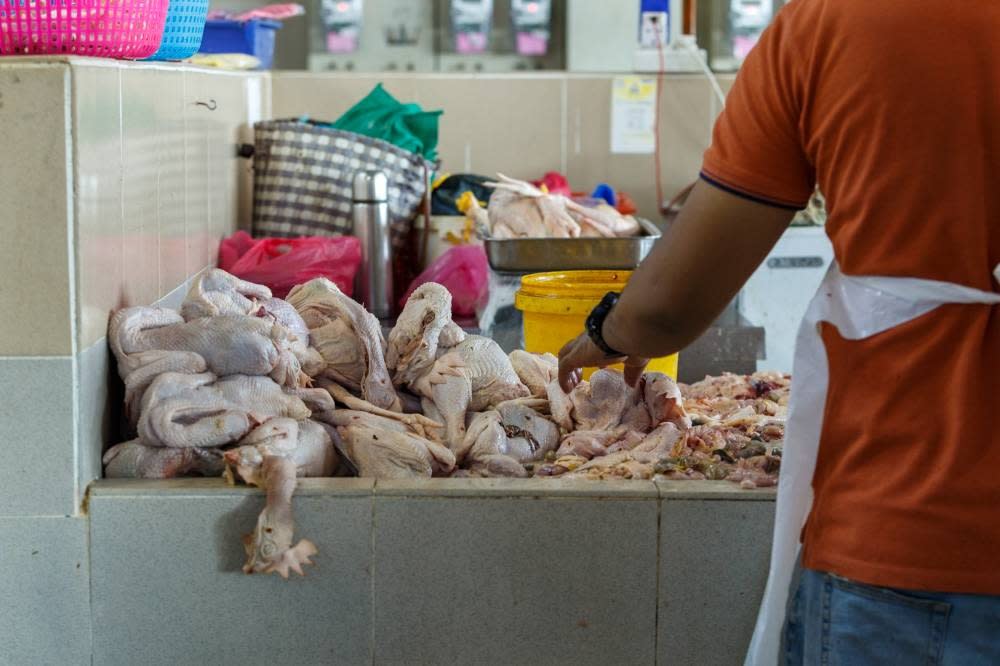Going extinct: Chicken rice in Singapore

MAY 29 — Last week, Malaysia banned the export of chicken from June. Citing a shortage of chicken and rising prices domestically, the Malaysian government announced it would stop the export of chicken.
Singapore is the largest destination for Malaysian chicken exports and over 30 per cent of the chicken consumed in Singapore comes from Malaysia.
There are now fears that there will be a chicken shortage in Singapore as a result of the ban.
Even if Singapore is able to source more chicken from other nations, the price of chicken will almost certainly rise significantly as chickens will likely be imported from more distant destinations like Australia and Brazil.
This is part of the knock-on effect of Covid-19 related supply chain disruptions and the war in the Ukraine.
Covid related restrictions had already caused the cost of shipping to spike and deliveries to become less consistent.
The conflict in Ukraine meanwhile impacted grain exports from Ukraine and Russia, both large grain exporters. Grain is an essential part of animal feed so with supplies of grain diminishing, it is harder for farmers to rear and fatten as many chickens as they did before causing supply shortages around the world.
Malaysia's response to the shortage has been to restrict exports. While this might seem like a logical move, in the long term it's likely to do harm to both Malaysia and Singapore.
Exporting chickens to Singapore provides valuable revenue for Malaysian farmers and allows them to sell chicken more cheaply in the local market where the government imposes a ceiling price.
Without their export markets, many farmers will simply stop or reduce production. Which means Malaysia may not receive the extra chickens the government hopes for as a result of the ban.
In the long term Singaporean suppliers may be loath to return to Malaysian suppliers even after the ban — meaning it may be difficult for Malaysia to recapture a valuable dollar based export market.
On a larger scale, this sort of protectionism begins to tear away at the fabric of free trade and mutual trust that the world and the broader Asean region has built over several decades.
As we watch nations begin to prioritise themselves, entire systems will begin to break down and this rebalancing will be painful and the end result may not be more stable food chains.
The globalised chains we have used for the last several decades have had a negative impact on the environment and smaller farmers in developing nations but in many respects it was a system that worked.
We haven't seen major food shortages anywhere in the world for decades. Food has flowed from areas of relative abundance like Australia, the USA and Brazil to other areas quite smoothly.
Any transition to more local supplies and greater self sufficiency will see disruptions and price rises in the short and medium term.
In the very long term, a move to more local produce and simply eating less meat will probably be a good thing but getting to that point is going to impact both families and small businesses as costs rise.
Also while moving away from excessively globalised supply chains may make sense, we will always need regional flows of produce.
While it makes sense for Singapore to wean itself from Brazilian chicken, thus reducing the impact on the environment, Malaysia will always be our best import partner for poultry.
But currently we seem to be heading towards the opposite. We are going to start importing more from distant countries at high environmental costs rather than relying on a neighbour and long-term partner.
The precedent is not good. This is about more than chicken; it's about trade at the most fundamental level. And the modern world we know is built on trade.
Are we really ready to start taking it all apart?
* This is the personal opinion of the columnist.



